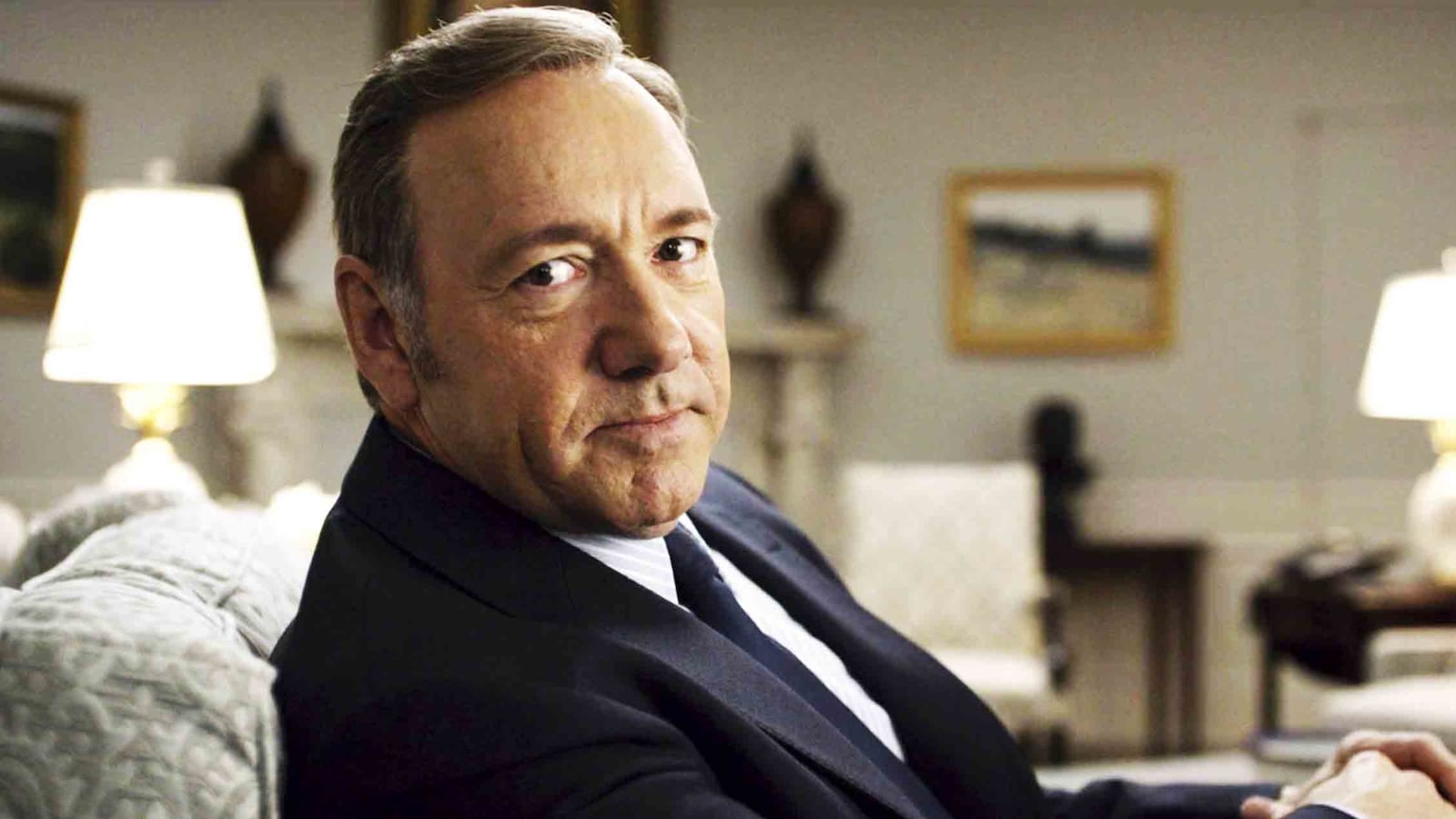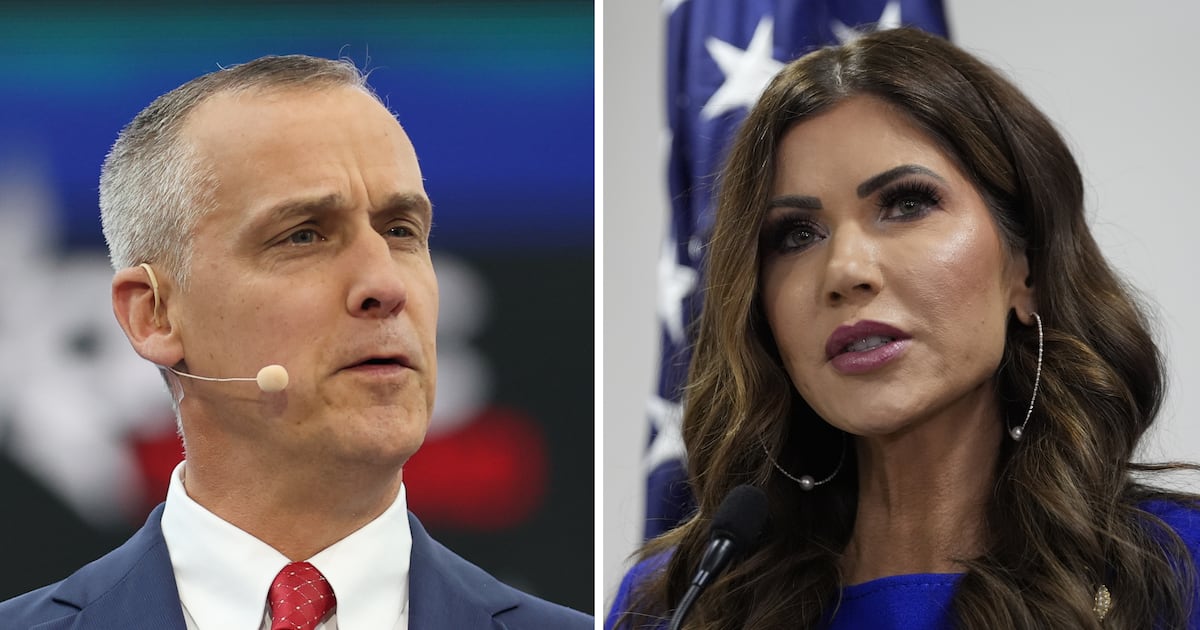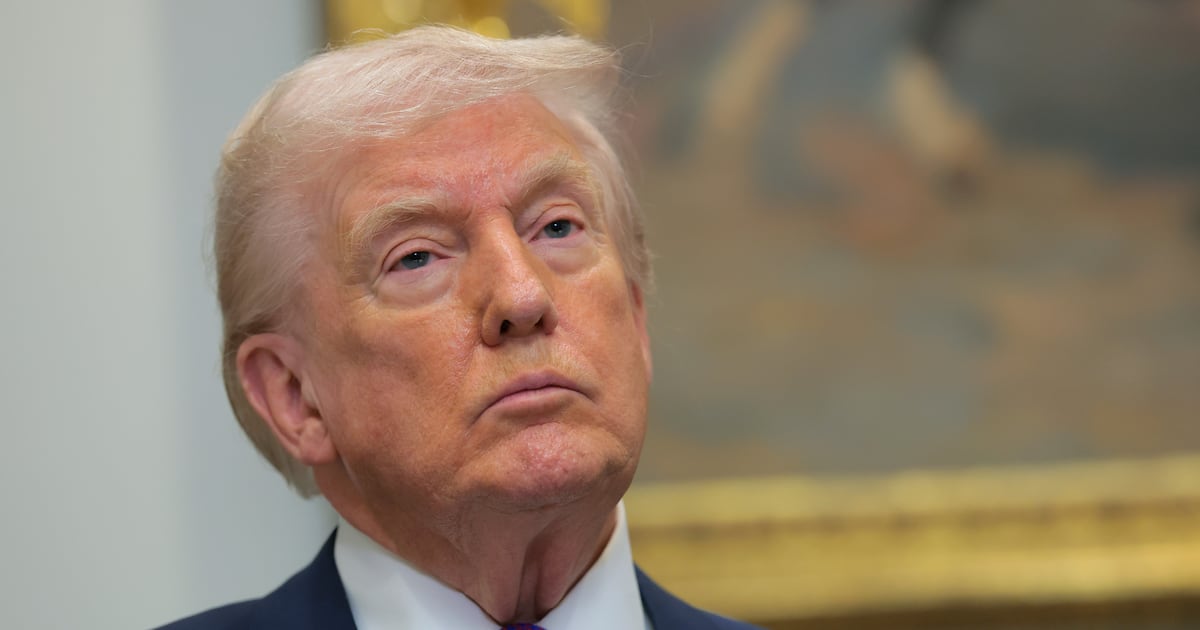It’s a fallout so epic you’d half expect Kevin Spacey in character as Frank Underwood to turn to the camera and purr some bon mot about how he’s planned it all along.
Less than 24 hours after BuzzFeed News detonated a bombshell article detailing an allegation from Star Trek: Discovery star Anthony Rapp that Spacey, when he was 26 and Rapp 14—and both performing in plays on Broadway—made an inappropriate sexual advance on him, Spacey disastrously responded to the accusations.
After pointedly choosing to ignore the news outlet’s numerous requests for comment, Spacey and his camp released a public statement in which the Oscar-winning actor, after years of speculation, came out as gay, thus deflecting the disturbing accusation made against him by redirecting the headlines to the news about his sexuality.
More, the apology portion of his statement had the effect of conflating homosexuality with pedophilia. Because he never mentions Rapp’s age or the specifics of the allegation of sexual misconduct with a minor—hell, not even denying them—he essentially silenced the conversation that seemed on the brink of finally breaking through about the “open secret” of sexual predation against young boys in Hollywood.
One could call it masterful spin… had it not so quickly exploded.
Members of the gay community quickly condemned Spacey’s statement, and GLAAD issued a statement criticizing it as well—a rare instance in which a person’s coming out has been viewed with vehement negativity by the community.
And in the wake of all of this, Netflix, acting with remarkable swiftness, essentially canceled House of Cards, announcing that the upcoming sixth season, which is currently in production, will be its last.
Soon after the end of the series was announced, Netflix and Media Rights Capital, the independent studio that produces the show, released a joint statement saying they are “deeply troubled” by the allegations against Spacey.

Anthony Rapp attends 'Star Trek: Discovery' panel during Comic-Con International 2017 on July 22, 2017, in San Diego, California.
Mike Coppola/Getty Images“In response to last night’s revelations, executives from both of our companies arrived in Baltimore this afternoon to meet with our cast and crew to ensure that they continue to feel safe and supported,” it continued. “As previously scheduled, Kevin Spacey is not working on set at this time.”
Surveying the reactions to all of this—the comeuppance following Spacey’s tone-deaf statement, the ensuing cancellation of House of Cards—you might notice a certain amount of reveling in the downfall.
The way Spacey has to some degree commoditized his coyness about his sexuality has long been a source of frustration among those in the LGBT community. And there’s an element of “good riddance!” to the demise of House of Cards, a series that has seen its critical standing almost completely erode in recent seasons.
Still, the tone of House of Cards ending on these terms—as collateral damage to the controversy surrounding Spacey—shouldn’t discount a simple fact about the show: House of Cards changed the face of television forever, and that is surely something to reckon with as critics and those disgusted by Spacey dance on its grave.
Moreover, the way in which the series and the character of Frank Underwood taunted and toyed with the public with respect to Spacey’s persona certainly contributed to that legacy.
House of Cards, which launched on Netflix with an unprecedented $100 million price tag, two-season straight-to-series order, and luring of filmmakers as prestigious as Spacey and David Fincher to television, might be responsible for #PeakTV as we know it today, ushering in the age of original streaming service content that Netflix has pursued with abandon.
And now it is exemplary of the ways in which we both reward and punish, cheer and then condemn, the meta relationship between a performer’s reputation and the project in which they’re starring—at least until the practice crosses a fine line.
It’s upsetting, of course, to revisit anonymous stories about Spacey on the House of Cards set that Gawker published back in 2015—unattributed and damning celebrity gossip was always the site’s cause célèbre, for better or worse—in light of Anthony Rapp’s accusations.
They’re mostly friend-of-friend relayed anecdotes, but nonetheless scandalous. “Spacey regularly solicits the young (early 20s), male crew members” says one. Another says a friend told him “several stories about Spacey harassing the male PAs set.” And yet another recounts seeing him flirting with area young men on at least two occasions. Series creator Beau Willimon, meanwhile, issued a statement claiming that he “neither witnessed nor was aware of any inappropriate behavior on set or off” while working on House of Cards’ first four seasons.
But beyond that salaciousness is the way House of Cards seemed to play with Spacey’s reputation and the rumors about him.
Who can forget, for example, the jaw-dropping scene showing foreplay to a threesome between Spacey’s Frank Underwood, Robin Wright’s Claire Underwood, and their loyal secret service agent, Edward Meechum (Nathan Darrow).
The scene, sure, was a fascinating glimpse into the power dynamics and fetish for manipulation in the Underwood marriage. It also did its duty whipping the internet into a tizzy over Kevin Spacey making out with a dude on TV.
By that point, of course, we already knew that Frank Underwood was possibly bisexual, which was itself a noteworthy development in terms of Spacey’s career. It would be too much to speculate if rumors about his sexuality were the reason why, but the actor had only once before played a character who wasn’t straight: in Midnight in the Garden of Good and Evil. For rumormongers and lovers of the kind of gossip sites like Gawker peddled, Frank’s sexuality was certainly a titillating topic.
Back in season one, we learned that he had “messed around” with one of his old school buddies, laying the groundwork for a character that, if not bisexual, was at least open to the pursuit of his desire, wherever that might take him. And in the most recent season, another male love interest was introduced: his personal trainer, an out of work actor who had played Frank’s ancestor in a Civil War reenactment. (What was that about the show heading off the rails again?)
In one respect, there is something refreshing about a character so unencumbered by norms about sexuality. One could imagine that the lack of shaming or repercussions for that would represent some sort of idyllic situation for Spacey. That’s something one could feel compassion for.
But there’s also the Machiavellian way in which Underwood could manage to twist scandal, rumor, and negativity to his own gain, exhibiting mischievous glee at his ability to ruse, mislead, and benefit from that deception. That’s something that we also saw wielded with extreme tone-deafness by Spacey himself, most recently at the 2017 Tony Awards.
Who knows how much art imitating life, life imitating art transference there was with Spacey and House of Cards. But the way both he embraced the camp of the show and the show embraced the camp of being Kevin Spacey certainly became evident as the seasons progressed. Now, the conflation of the actor and character, once so encouraged, may have contributed to the show’s ultimate cancellation amid scandal.
In turn, the show ends in disgrace, rather than bowing out as the series that set the course for television’s new direction. And Spacey, who, had he ever come out of the closet in a more tactful way, would have had the opportunity to be the only openly gay lead actor of a TV drama series of House of Cards’ stature—a milestone that still hasn’t been reached and Spacey will not (and doesn’t deserve) to be celebrated for now.
Speaking in terms befitting House of Cards, it’s the fall of an institution: Netflix’s cornerstone original series and its A-list star. And if we can save anything from its rubble, it should be to ensure that Anthony Rapp and his story isn’t merely the plot device that set off its destruction, but the beginning of a new narrative and catalyst for reform in the industry.






